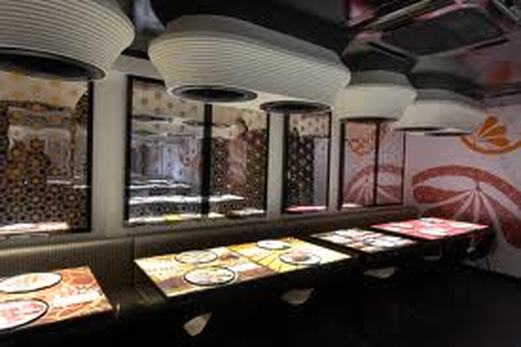|
I have been thinking about why many people never put their ideas into action. The vast majority of us have a business idea every single day but most will never even try to research whether or not it would work. Why is that?
As I pondered through the usual reasons people give, such as the lack of start up capital, the poor economic environment, so on and so forth, I thought of a reason I have never actually heard anyone use, mostly because no one would ever admit it: dozens of people are too embarrassed to fail and this psychological stumbling block holds them back from even trying. It’s not entirely their fault either, culturally we have been bred to avoid embarrassment. This fear has been instilled in most from a very young age. I will elucidate this with two examples. Example 1: The athlete who wanted to take part in something This weekend a 17-year old bloke named Sogelau Tuvalu from American Samoa in the South Pacific entered the 100-metres and finished miles behind everyone else; I say miles but it was actually a mere 5-seconds after everyone else, however, in the world of 100-metre sprints, that’s a big difference. This man had initially failed to qualify for a shot-put event so he decided he would go the 100-metres and in preparation for that he trained 4-hours a day for a month. On the day of the run he achieved his personal best although he was the last man to pass the finish line. Whilst other laughed at him, he was ecstatic at merely having tried. I admire this sort of spirit because, for me, that is what life should be all about: trying your best and being your best. Example 2: The girl who isn’t embarrassed to ask That’s me. Two days ago one of my colleagues brought up a situation in which I had asked a highly intelligent question but had mispronounced one word. In fact the mispronunciation was due to the fact that the word is pronounced differently in classical Latin versus in English. I learnt Latin first and that’s how I thought the word should be said and in fact I prefer saying the word that way. Anyhow, he has a laugh and I laugh with him because I don’t take myself too seriously and then I told him that I was still proud to have asked the question because a) in the entire forum of about 200-300 people no other woman asked a question and I thought we shouldn’t just leave the floor to the guys and b) several people wanted to know the answer to my question but asking it would have looked like they were challenging the decision of senior managers; I, on the other hand, am nonplussed by such considerations. “I’m not easily embarrassed," I told my colleague, in conclusion. “Yeah, I’ve noticed,” he answered back, annoyed that he had failed to irk me. And that ladies and gentlemen is the bottom line. Some people just have such a strong fear of this emotion called embarrassment that they will not put themselves in any position where there is a chance that it could happen. I am proud to be a member of the not-so-easily-embarrassed crew and I hope this will enable me to make positive decisions in my life. As long as you believe that you have done or are doing the right thing, PLEASE don’t let the fear of embarrassment stop you from trying to put your dream into action, go for it!
2 Comments
We're walking down Regent Street in Piccadilly wondering where to eat. I want Thai food but reluctantly we walk into a Sushi restaurant not knowing that we are about to encounter a brand new experience vis-à-vis dining out: Inamo.
Two Oxford graduates were dissatisfied with having to wait around in restaurants for waiters to take their order, add new things to the order, bring their bill and so on and so forth. So what did they do? They opened a restaurant without the unnecessary addition of waiting staff. How does that work? Projected directly onto your table from above is an interface resembling a computer screen. A circular touch-pad built into the table's corner allows you to control a cursor and peruse the food and drinks menu which appear elegantly from cartoon icons. Like all authentic Japanese restaurants there are pictures of the food as well as descriptions on this virtual menu which you can scroll through and whose thumbnail size images expand with a click. When you're done with ordering, you send the request to the kitchen at the touch of a button. Say what? It doesn't end there: if you want to see a summary of your group's bill including your portion of it, it's on the choice of options. Want to check out what's going down in the kitchen? You guessed it, it's on the menu: a real-time video-link of the chef appears for all to see. You can even choose the visual theme of your table top: bamboo shoots, flowers, pebbles - I think there were over a dozen themes to choose from. Can't decide? Well, then hit "random shuffle" and the table theme will change every two minutes. Ready to leave? just hit the "ask for bill" button on the menu. I wonder why this sort of technology is not more widespread? It makes life just that little bit more convenient: waiting is not my forte. Could Inamo be improved? It's a pretty neat experience but yes, there are a few niggling points that I have. Firstly, the camera into the kitchen gives fuzzy pictures and it would be good if the camera roamed from one corner of the kitchen to another so that we could see everything the chef is up to. The menu offers a list of things to do in the vicinity after the meal, however, the options are rather limited, and it is not interactive (but then I guess we would be asking for an internet connection and the birth of the iTable). All minor points but every good entrepreneur is always looking at ways of taking their business further so I'm sure these two Oxford chums will appreciate the feedback. If you haven't been to Inamo, book a table now. No, I'm not getting paid for the recommendation, I genuinely liked the place! What comes to mind when you hear the phrase “keeping up with the Joneses”? Do you visualise a dissatisfied couple purchasing items they can scarce afford in an attempt to appear as though they are of the same status as their neighbours? Do you sneer at the thought of the type of person who seems to ever want what their neighbour has, never satisfied with their own possessions?
The recent riots in London have divided people along two key lines of argument: those who think that inequality of opportunity has left the youth dissatisfied versus those that argue we’re raising a generation of morally bankrupt individuals; kids lacking in scruples because they have grown up in homes where parents are unable to properly discipline them for various reasons including Government regulation; inadequately supervised because their single parent has to work all hours of the day to make ends meet; council estates where it’s cool to be “bad”, and so on and so forth. I think there’s a lot of water in the former argument, that of inequality. I recall a certain example from my Development Economics lessons in university; I don’t know who to attribute this to because I honestly don’t remember. The example went something like this. Imagine you’re stuck in a traffic jam on a dual carriageway or any other two lane road; you’re tired and exasperated of waiting when you see the other lane begin to move. Initially, you’re happy because if that lane has started moving then soon yours will too. However, to your chagrin your lane stays put well after the other lane has achieved a steady flow. So what do you do? You try to cut into the other lane by any means possible. If they're moving, you feel entitled to also start moving, it’s not fair otherwise. You can’t see the obstacles that have been circumvented to clear up the bottle neck in their lane but for you, that is beside the point. Think of the lane with moving traffic as the rich in society and the lane that is not moving as the poor. The poor see the rich getting richer but for themselves, they see no way out. A poor education locks many out of lucrative professions; the “wrong” social networks can mean that whilst a well-connected person merely needs to make a few phone calls to secure an internship others don’t even know where to start with regards to securing professional internships. So what do you do? You want the same things that everyone else seems to have: the iPhones and Blackberries, the MacBook Pros and Ralph Lauren sweaters. You turn to crime or to the credit card. I would not recommend credit card fuelled consumerism but that is the solution some choose. Nor would I recommend crime obviously. So there has to be a third path. The majority of those that were rioting probably can’t get approval for a credit card; they are young without a credit record or even a steady job. It is so easy to think of them as thugs without scruples and if I had been directly affected I probably would be saying exactly that. However, from the perspective of an outsider looking in, all I can say with certainty is that there is something very wrong when large mobs think it is okay for them to destroy and loot small shops or any shops. The factors underlying each person’s motivations are probably mixed, complex even. Bar the odd kleptomaniac and the mentally unstable, nobody that has something to lose would risk it by stealing and bashing shop windows. We consequently need to start from that point: eliminating the existence of a large class of people that feel they have nothing to lose, that they have no hope. There was an interesting article on pensions in City A.M. a couple of days ago. Although I agreed with most things suggested by the article such as, the earlier you start saving towards a pension the better (even if it is just a small sum to start off with), I thought property was discussed in an overly simplistic manner. It was noted that 13% of those surveyed said their property was their pension. In pointing out that property does not necessarily provide a better return than the stock market, the article quoted James Sumpter of Bestinvest: “Contradicting common misconceptions, Sumpter notes the FTSE All Share index rose 1,038 per cent in the last 25 years since 1986, while over the same period house prices have risen by just 367 per cent – 427 per cent in greater London.”
Point 1: Leverage really juices up the return on property The figures above give the impression that a £10,000 property investment would have grown to a value of £36,700 25-years later whilst the same investment in the FTSE All Share would have mushroomed to £103,800. However, if Joe Bloggs wants to buy a property he can borrow a good portion of the money needed to make that investment from a bank but Joe Bloggs would not be able to borrow as easily to invest in the stock market. This is best understood with the help of an example. Just prior to the 2007 credit crunch 100% loan-to-value mortgages were plentiful. That is, you could borrow all the money needed to buy a house and sometimes even more. My friend bought a flat in 2006 for about £250,000 and all she put in was about £5,000 to cover the tax, legal fees and other purchase costs. She lived in the house for 3-years and then let it out because she was going abroad. The rentals she’ll get from the property over a 25-year period will likely exceed the mortgage repayments required but for simplicity, I am going to conservatively assume that the rent received exactly equals the mortgage and maintenance costs including the mortgage payments she made herself during the 3-years she actually lived in the property. If history repeats itself and property returns 367% over the next 25-years, her profit will be £912,500 (that is, £250,000 x 367% - £5,000). Had she put the same £5,000 into the stock market, her profit would only have been £46,900 (that is, £5,000 x 1,038% - £5,000). That huge stock market return isn’t looking so juicy in comparison anymore, is it? Point 2: the return statistics ignore some of the flexible cash flow opportunities that property offers in a way that the equity market does not and cannot A little background: some of my thinking on property has partly been shaped by Robert Kiyosaki’s, Rich Dad, Poor Dad, I was reading that book at exactly the time that I wanted to buy my first property. Kiyosaki planted the seed in my head that the house you live in is not necessarily a great investment from a cash flow perspective. From the point of purchase, a home bleeds cash out of you due to the deposit required, legal fees and other transaction costs; then on an on-going basis the property also needs to be maintained. I was planning on buying a one-bed property at the time because that is all I could afford in the areas that I wanted to live but once I read Kiyosaki’s take on property, I changed strategy and shopped around for two beds. Although I was stretching myself thin I knew bedroom two could be let out to help with the mortgage. This is exactly what I did. I was also very lucky in managing to find fun, like-minded housemates every time the room was free. A pensioner can do exactly the same thing if they don’t want to sell their property. If there are free rooms in the house due to children fleeing the nest, why not let those rooms out to earn more money. With an equity portfolio, dividends only occur at very discrete points in time and indeed in a recession companies are prone to cancelling their dividends. I know of another person who built a fabulous house on the coast somewhere in Australia. Every summer she worked abroad for three months during which time she let the property out. Those three months produced enough rent to pay off the entire year’s mortgage. Of course this option is not available to all of us but it is another example of the versatility of property. Final point: buy to let Many cannot afford to buy more than the property that they live in, however, those that can may intend to hold the property indefinitely and let it out for income during retirement. There is a certain obsession in Britain with climbing the property ladder: people buy one property, then once it increases in value they sell it to buy a bigger, better and more expensive property that they previously could not afford. Some people continue aspiring towards bigger and better even after they have found a property that comfortably accommodates their entire family. I personally don’t agree with this strategy, I think it’s better to live in a slightly less optimal house to make it more affordable to buy to let. The beauty of a buy to let is that someone pays the mortgage off for you. I see it is a way of saving using someone else’s money. I won’t even go into the fact that many people don’t understand how stock investing works nor do they want to get involved in it because the idea makes them feel uncomfotable. Property investment is not a sure fire winner, it does sometimes result in severe regret either because one ends up buying in the “wrong” area or finds that the property has structural issues that cannot be easily resolved or for some other reason. Despite this property will always be high up on my list of favourite investments because it offers access to leverage and to cash flow opportunities. Some people deserve to be super wealthy…
You all know him: Mr Bean. So this weekend he massively crashed his F1 McLaren, a car that costs £2million second-hand because of its exclusivity (it's cheaper brand new but you have to join an excruciatingly long waiting list). Some would argue that spending £600,000 or more on a car is completely wrong. In fact, there are many that would but is it really? If you've worked so hard to create something that earns you a tonne of money, shouldn't you be able to splurge guilt free. If the money were inherited or obtained by chance on a lottery, we could argue differently but here I focus on the spending of earned money. Am I wrong to believe that some people deserve their wealth (no matter how enormous) because of their amazing contribution to this world. Humour has a huge role to play in society, it binds people and I believe Mr Bean’s humour succeeds above most because it transcends linguistic barriers, age and even ethnicity. Whether you speak English, Chichewa, French or Urdu, Mr Bean can reach you. He can get a chuckle as easily out of a five year old as he can out of an eighty-five year old. There is only one Mr Bean and though others may try, they cannot replicate the uniqueness of the Mr Bean series. Moreover, besides buying supercars I assume (I can't find any evidence) Mr Bean probably contributes more to charity than most of us so perhaps we should not be so quick to criticise. Most people who have crazy money will splash out because the fact of the matter is, you can’t take it with you to the next life. Like as not, what you don’t spend – will get spent by someone else, someone that didn’t put the time into earning it – relatives, if you have them and the Government, if you don’t. I haven’t watched Mr Bean for fifteen plus years but I still remember those days with warmth. I completely disagree with ill gotten gains, however, would you not agree that Mr Bean is very much entitled to spend his wealth in whatever way he chooses? There are more examples of people who have done something so different or so interesting that we just want to throw our hard earned dosh at them: Bill Gates – what would I do without my oh-so-affordable laptop and the internet; Steve Jobs at Apple – where would I be without my iPhone? These guys have gotten mega-rich because we give our money to them. They haven’t stolen it and rather than criticise the luxury goods they have afforded themselves we should applaud their contributions. If you want money – do something interesting or different; do something that will make someone’s day-to-day existence easier or better. When you do, the cash will come rolling in and you’ll see how you won’t appreciate commentary on your expenditure choices. |
By Heather
|
Heather Katsonga-Woodward, a massive personal finance fanatic.
** All views expressed are my own and not those of any employer, past or present. ** Please get professional advice before re-arranging your personal finances.







 RSS Feed
RSS Feed


